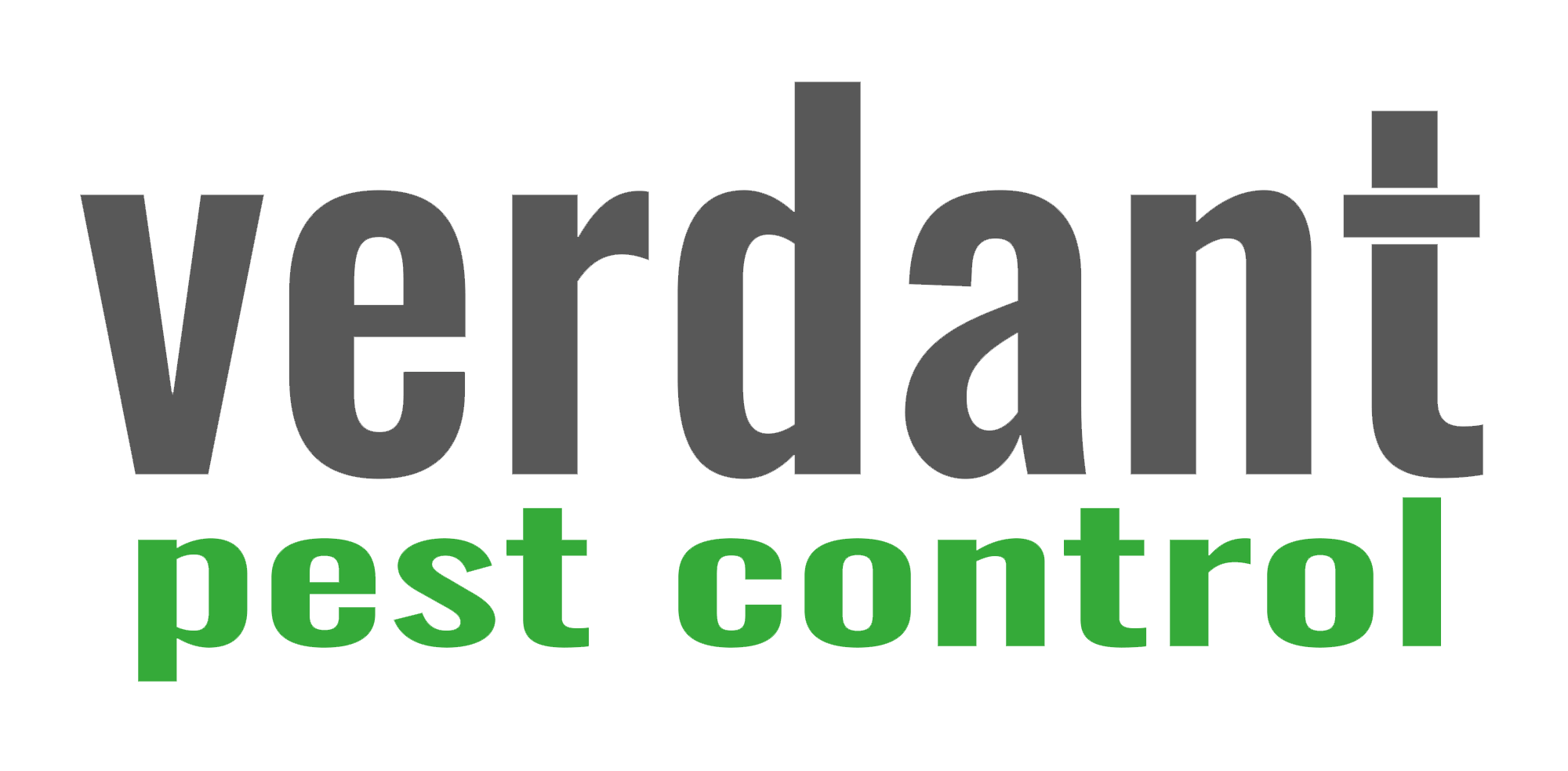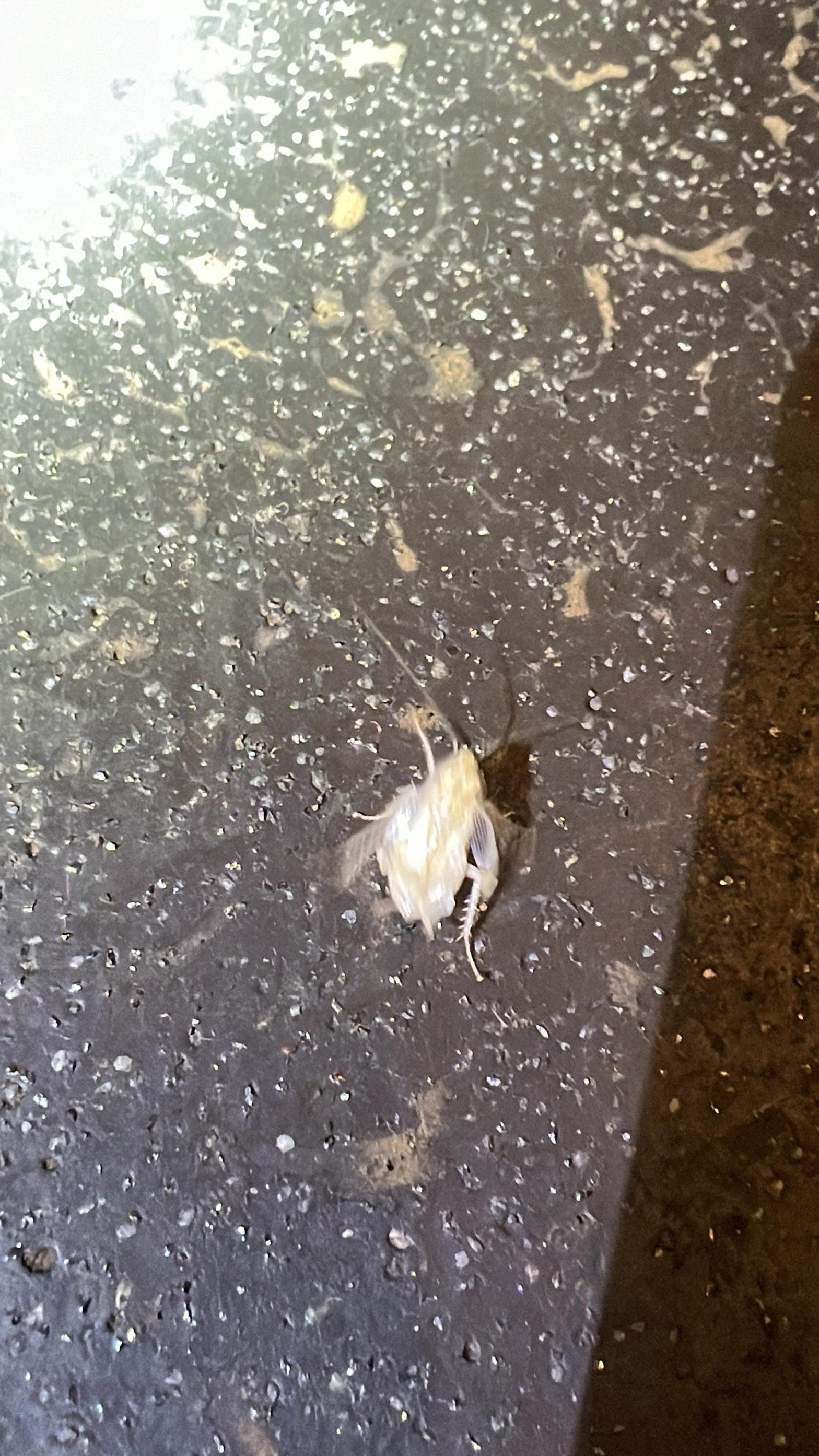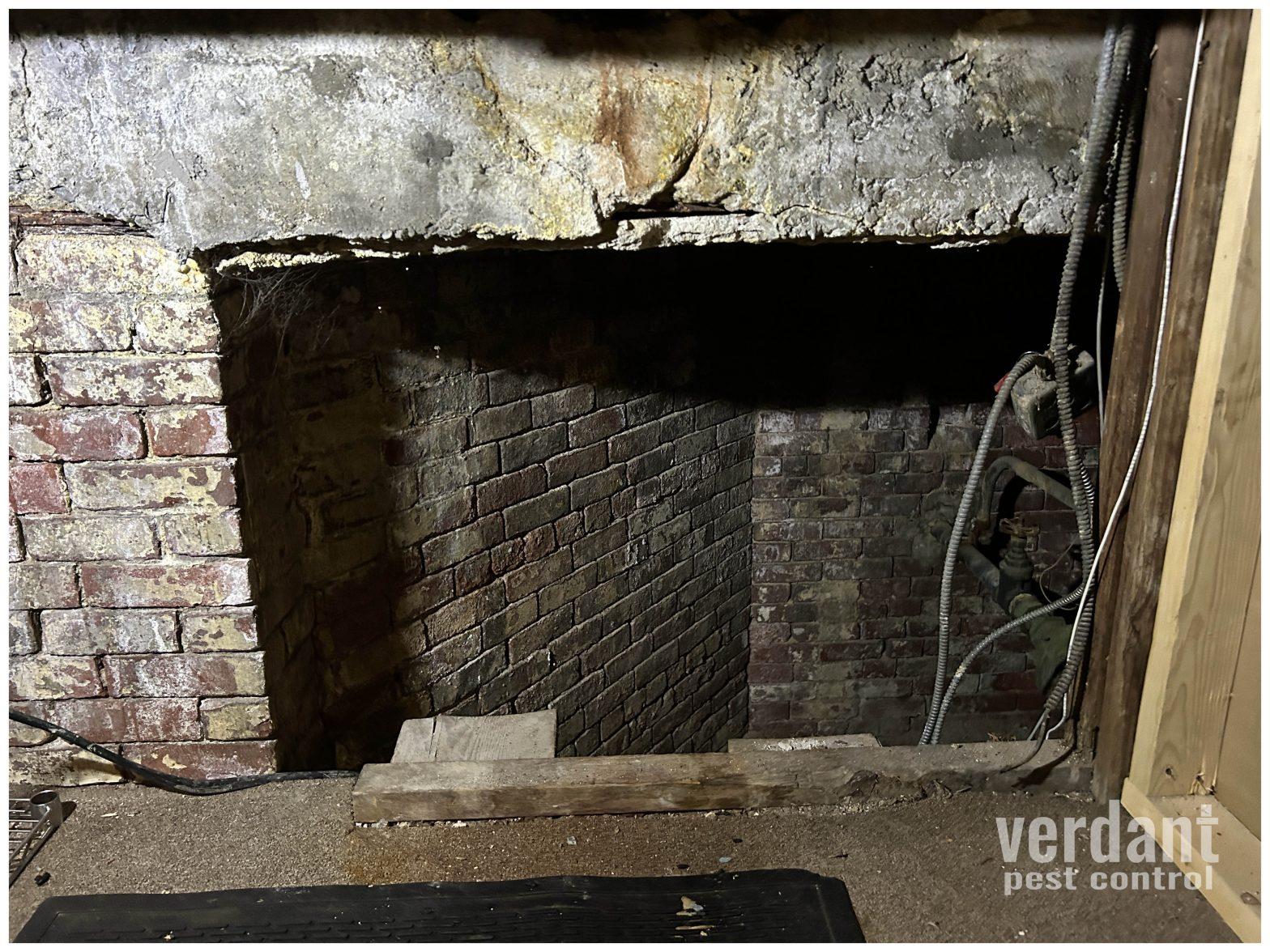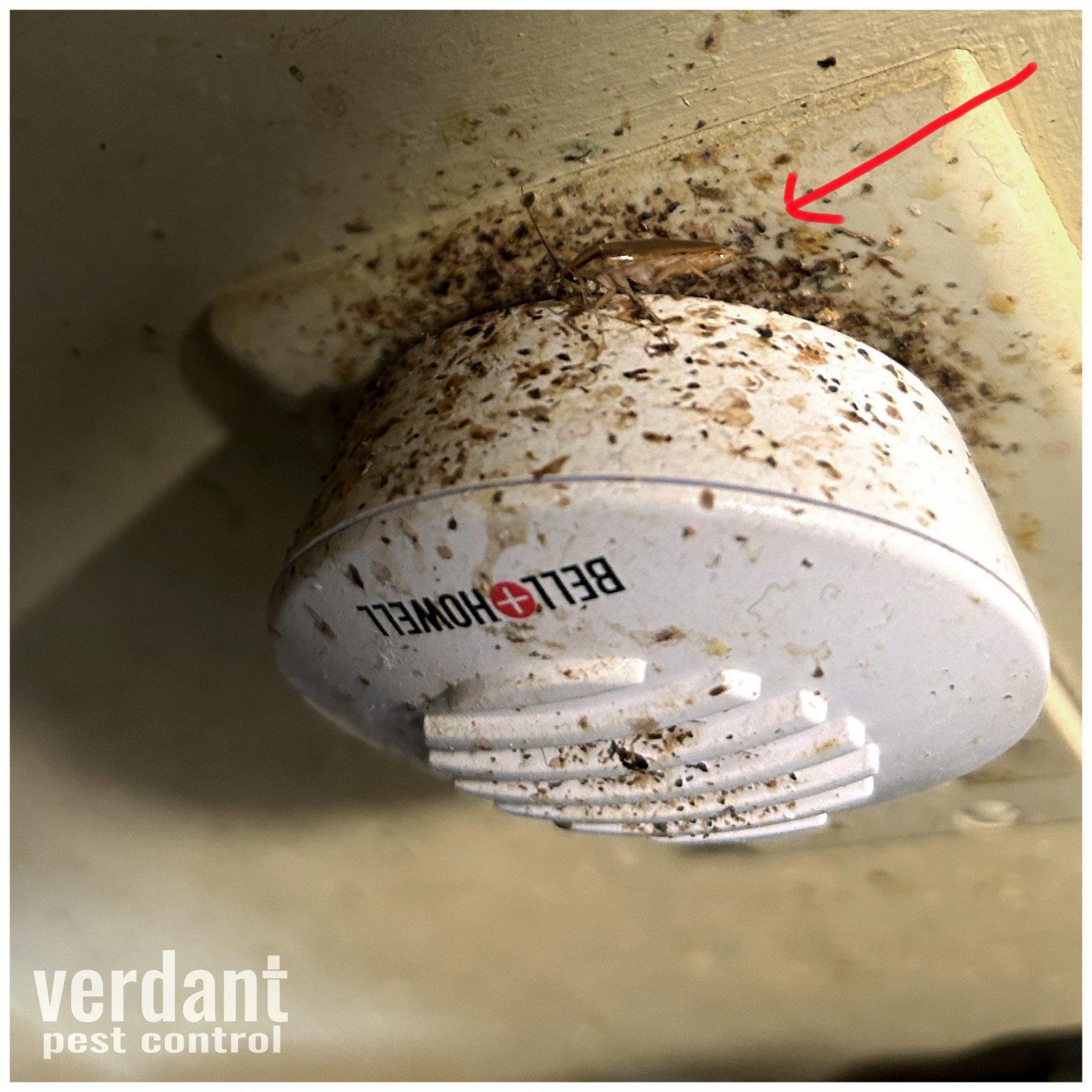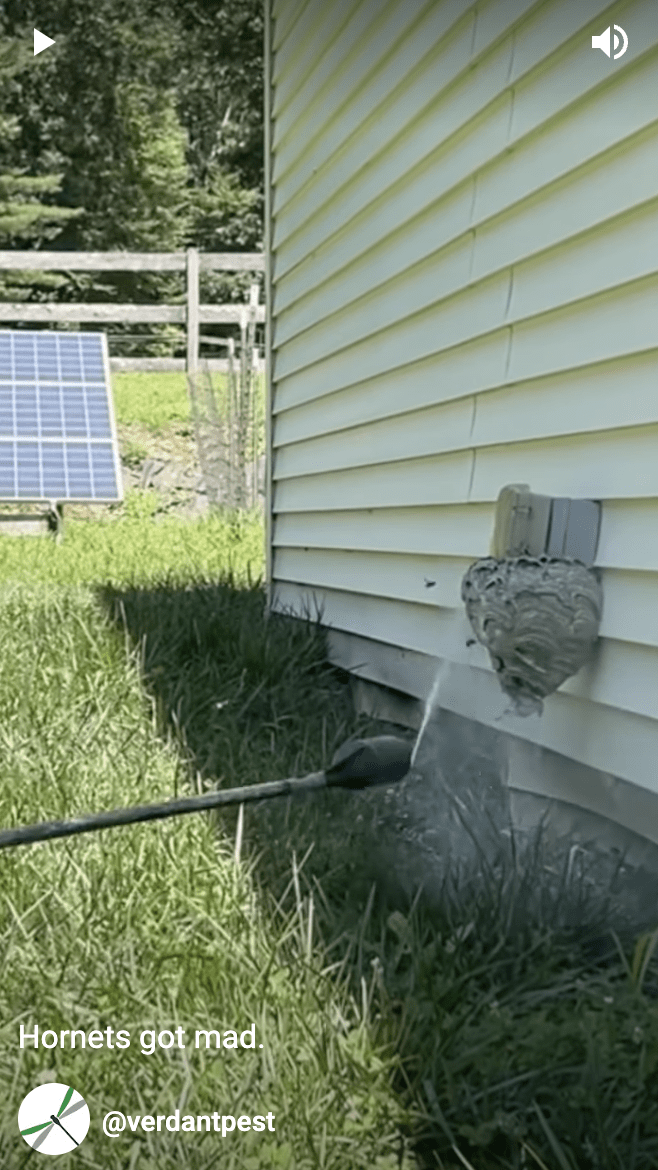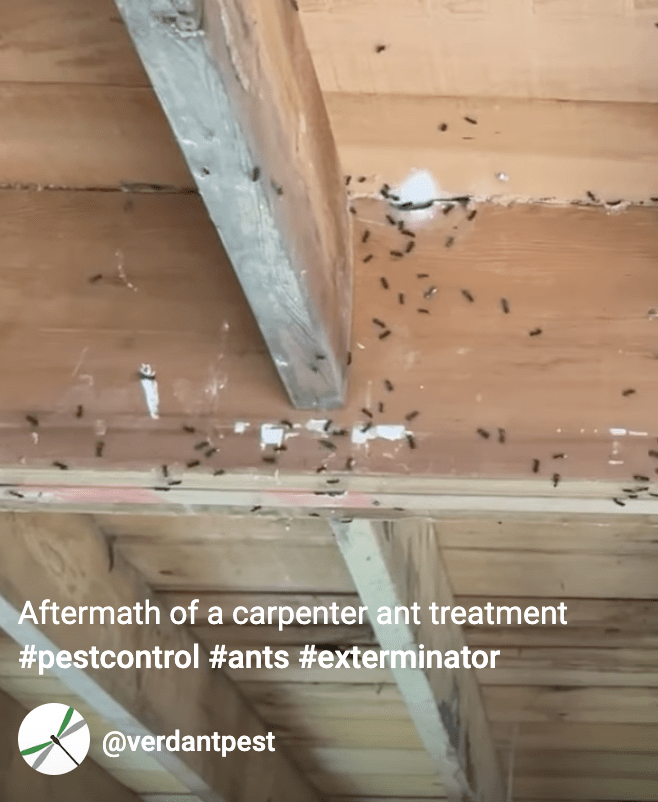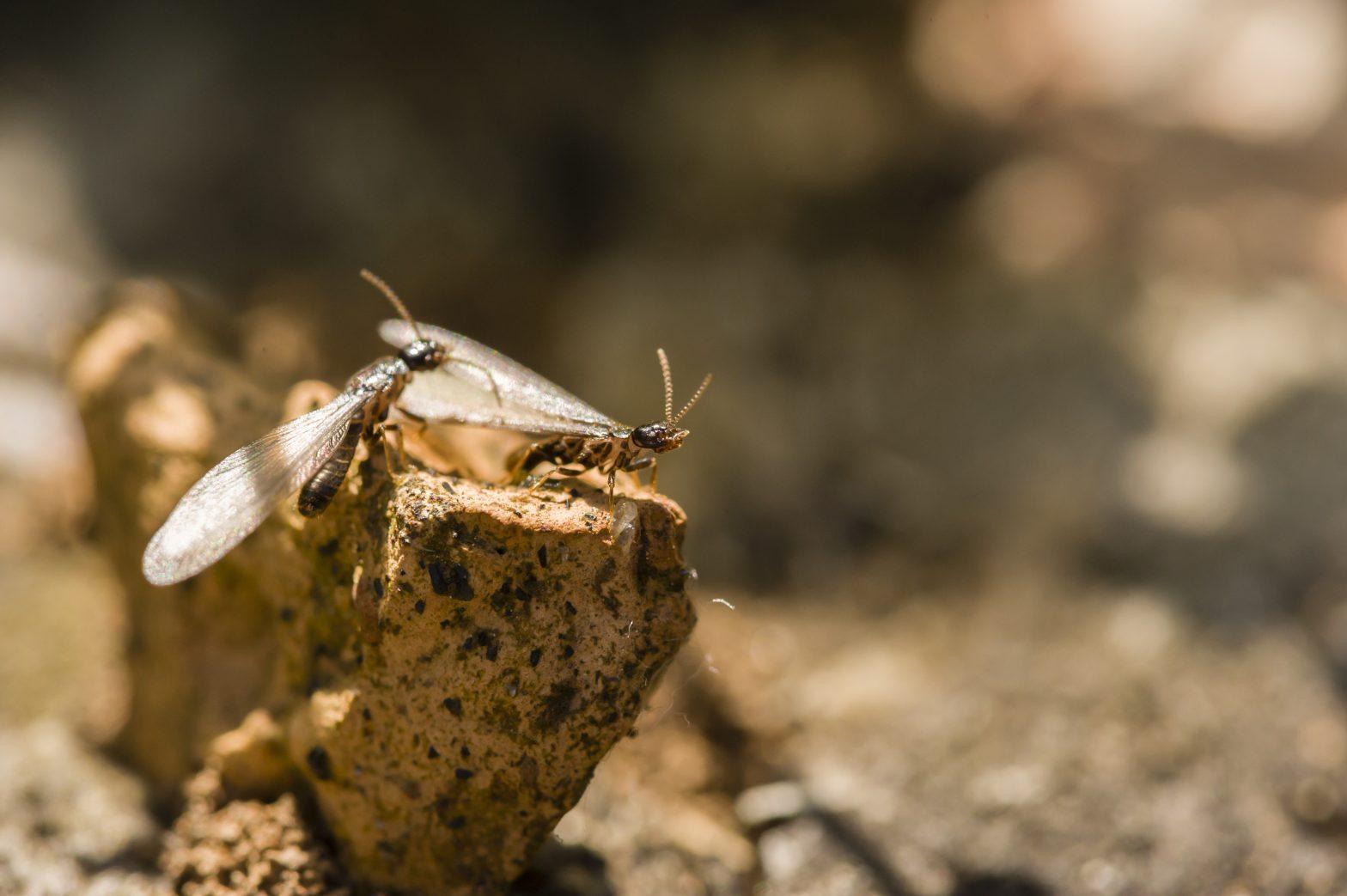Watch as this hidden wasp nest is exterminated. Wasps have built a nest inside a gap along the gutters and facia board. Take care this time of year as nests begin to get big and wasps become increasingly aggressive.
Tag: exterminator
Ever see an all-white cockroach before?
The intriguing reason behind why cockroaches turn white during molting. When roaches shed their exoskeleton, they lose pigmentation, which is gradually restored through a fascinating chemical process, influencing their color and possibly even their biological clocks.
Happy Earth Day!
Happy Earth Day. To celebrate we planted 50 more trees today!
100 More Trees Planted!
Verdant Pest Control is not just about eliminating pests… it’s also committed to nurturing the environment. With every service completed, we plant a tree, contributing to reforestation efforts and offsetting carbon emissions. Our eco-friendly approach not only ensures a pest-free environment for our clients but also fosters sustainability for future generations. Choose Verdant Pest Control for effective pest management that goes beyond the conventional, making a positive impact on both your property and the planet.
Rats in secret tunnel underground
Rats are living in this tunnel underneath the streets of a major city. We had to create a door that would keep rats from coming out of the tunnels and into the establishment. This is why I love pest control…because of the things you get to see that most will never have the opportunity to observe. These service tunnels keep sewers, steam pipes, electrical and I bet a whole lot of secrets. We don’t build them this intricate anymore!
HB 5217 hurts everyone and protects nothing
A couple weeks ago we provided written and oral testimony for HB 5217, a bill that would restrict the purchase of second generation rodenticides in Connecticut.
Roach Repeller…LOL
Sonic devices, which claim to repel pests like roaches through emitting high-frequency sound waves, have faced skepticism and limited success in practical application. While the theory behind these devices suggests that ultrasonic frequencies disturb pests and drive them away, several factors contribute to their inefficacy. Firstly, the effectiveness of such devices is hindered by the ability of pests, particularly roaches, to adapt to changes in their environment. Roaches may quickly become immune to the constant sonic stimuli, rendering the devices ineffective over time. Additionally, the limited range and penetration of the sound waves may not reach all areas where roaches hide, allowing them to remain unaffected. Scientific studies on the efficacy of these devices have yielded inconsistent results, further casting doubt on their reliability. Ultimately, a multifaceted approach involving proper sanitation, sealing entry points, and targeted pest control measures is generally more successful in managing roach infestations than relying solely on sonic devices.
Hornet’s Nest Exterminated
Click here to watch this hornet’s nest get treated and removed from a customer’s home.
Carpenter Ant Treatment: VIDEO
Click here to watch a 60 second video of a hidden carpenter ant nest getting treated with a dust pesticide.
Stop Termite Damage: Expert Pest Control
Subterranean termites are destructive pests that can cause significant damage to homes and structures. Here are some reasons why they are detrimental and why homeowners should consider pest control services to combat these pests:
Property Damage: Subterranean termites feed on cellulose material, which includes wood found in the structure of homes. They can chew through wooden beams, flooring, and even furniture, leading to severe structural damage. If left untreated, termite infestations can weaken the integrity of a building, compromising its safety and value.
Costly Repairs: Repairing termite damage can be a costly endeavor. The longer an infestation goes unnoticed or untreated, the more extensive and expensive the repairs become. Pest control services can help detect and eliminate termite colonies early on, preventing costly damage and the need for extensive renovations.
Silent Invaders: Subterranean termites are often referred to as “silent destroyers” because they can go unnoticed for extended periods. They build their nests underground and travel through mud tubes to access above-ground food sources. By the time homeowners become aware of their presence, significant damage may have already occurred. Regular pest control services can include termite inspections, ensuring early detection and prompt treatment.
Long-Term Protection: Pest control services offer long-term protection against subterranean termites. They employ various methods, such as liquid barrier treatments and baiting systems, to create a protective barrier around the home. These preventive measures can deter termites from approaching the structure and provide ongoing monitoring to catch any signs of reinfestation.
Professional Expertise: Pest control professionals have the knowledge, experience, and tools necessary to effectively handle termite infestations. They understand termite behavior, nesting habits, and treatment options. Their expertise ensures a thorough inspection, targeted treatment, and ongoing prevention strategies tailored to the specific needs of the property.
Peace of Mind: Knowing that your home is protected against subterranean termites can provide peace of mind. Pest control services provide regular monitoring, preventive measures, and timely treatment, reducing the risk of termite damage and the associated stress and financial burden.
Insurance and Real Estate Considerations: Some insurance policies do not cover termite damage. However, maintaining a termite protection plan through pest control services can help demonstrate proactive measures, which may be beneficial when dealing with insurance claims or during real estate transactions.
Subterranean termites pose a significant threat to homes and structures, and their presence should not be taken lightly. Engaging professional pest control services ensures comprehensive termite management, early detection, and effective treatment. By investing in regular pest control, homeowners can protect their most valuable asset and enjoy a termite-free living environment.
